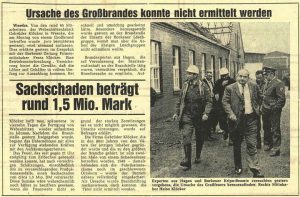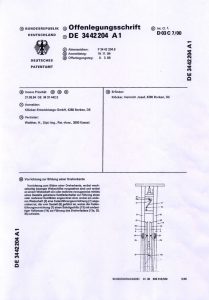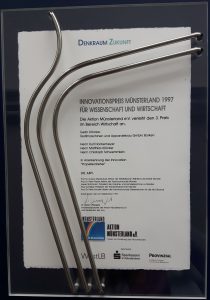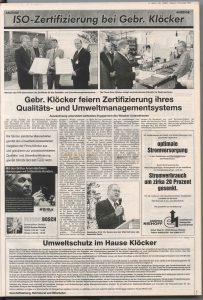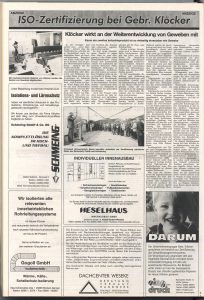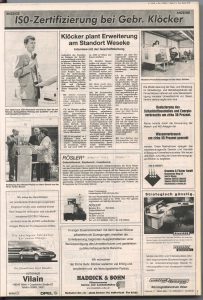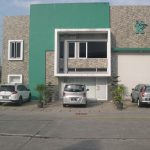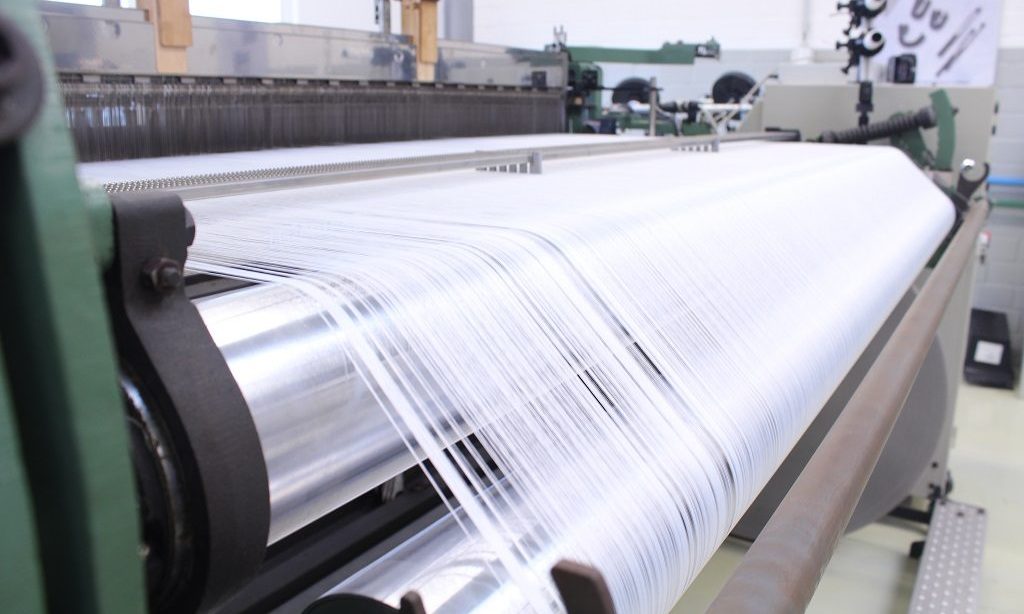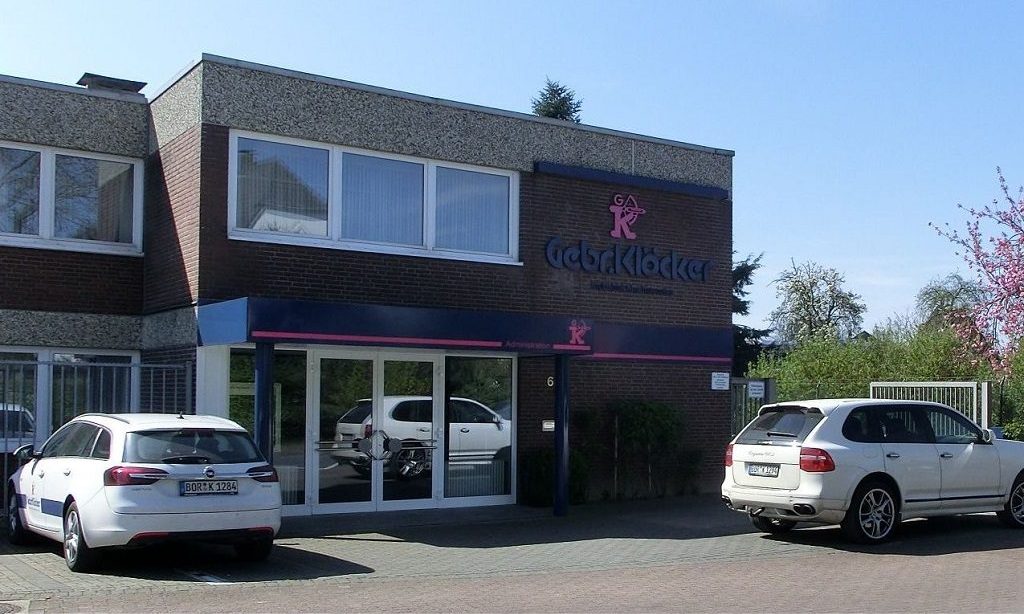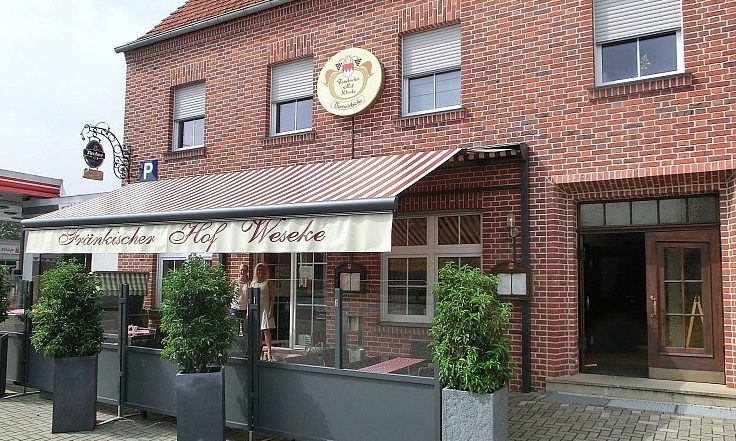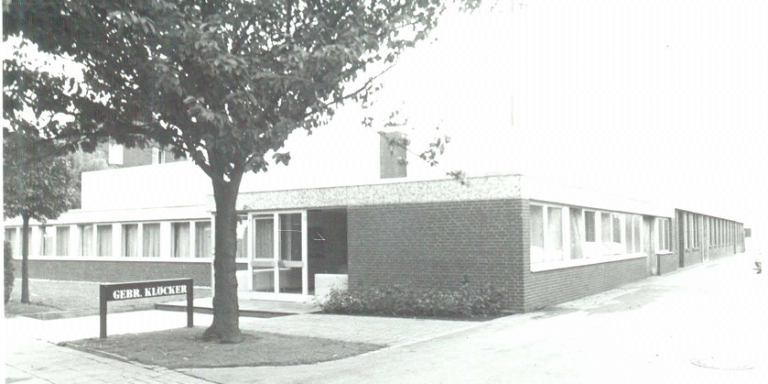
Company History
- 1846
The history of Klöcker Bros. goes back to almost 300 years. First official records of the company from Borken date back to the year 1846. All documents subject to the older history of Klöcker unfortunately have been destroyed in two serious fires.
Klöcker Bros. always have sustained their position in the market without any subventions, initially with the production of high-quality furniture at the original site opposite the church in the centre of Borken-Weseke.
The industrial revolution especially benefits the expansion of the textile sector in the Münsterland region in Western Germany. For this reason, accessories on wooden basis for mechanical weaving looms are being included in the production program in the course of time. Within the scope of this development, Klöcker Bros. focus on the production of weaving shuttles in the textile division and become known worldwide as one of the leading quality suppliers for automatic weaving shuttles during that time.
- 1900
As a German manufacturer of shuttles, Klöcker starts to produce metallic spare parts for textile industry by the beginning of the 20th century, particularly since alternative raw materials increasingly replace wood throughout the general machine building.
Nevertheless, furniture keeps being produced simultaneously.
Directly after the second world war, the original site at Flopsplatz in the centre falls victim to a fire. Insurance assets – paid out in Reichsmark in record time – are practically worthless due to the upcoming monetary reform. However, the reconstruction of the company is effected by the unprecedented personal commitment of the owners of that time, Messrs. Heinz and Franz Klöcker.
- 1948
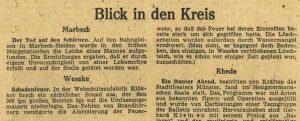
Consequently, a new start is being made at today’s site at Hauptstrasse in the year 1948: The furniture sector is being given up in favour of an intensification of production of accessories for textile machinery. Klöcker Bros. construct a new building at today’s premises. A new department for mechanical accessories is being established.
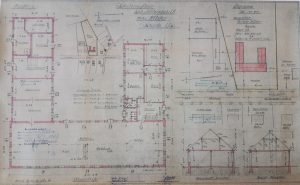
During the 60s and 70s, the weaving loom is subject to essential innovations. The conventional spindle shuttle is being replaced by the automatic shuttle reaching considerably higher speeds. The automatic shuttles are still made of compressed wood and form the focus of the product range. Klöcker has never responded to the qualitatively inferior spindle shuttle being made of plastic and being injected thousandfoldly in China even today. - 1974
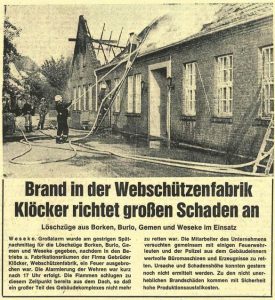 In 1974, a serious fire destroys the company Klöcker at its new site at Hauptstrasse again. There are rumors about malicious arson. The building is being reestablished. Two other halls follow during the next years.
In 1974, a serious fire destroys the company Klöcker at its new site at Hauptstrasse again. There are rumors about malicious arson. The building is being reestablished. Two other halls follow during the next years.
At the end of the 70s, the textile branch in the Münsterland region experiences a dramatic upheaval. Low-wage countries pose a serious problem for the local industry. The market is being conquered by the automated weaving machines transporting the filling yarn by so called projectiles, rapiers or by air or water power at considerably higher speeds than weaving shuttles may reach. Up to 1.200 picks per minute are being realized in operation today – for demonstration use on exhibitions, even 2.000 picks may be achieved.
- 1984
- 1990
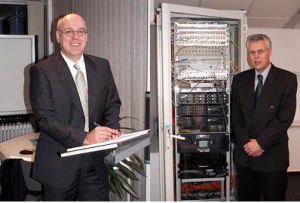
Within the scope of a change in leadership in 1990, the owners of that time, Messrs. Heinz and Franz Klöcker, surrender the responsibility for the company without any reservation to their successors and today’s managing partners Matthias Klöcker and Dr. Christoph Schwemmlein who expand the development department in Borken successively.Mechanical versions are being optimized step by step in terms of material. Amongst others, carbon fiber composites are being used. Later, mechatronical components, adjusted to modern models of weaving machines, are being converted additionally. Special importance is being attached to the so called CAN-Bus connection.
By beginning of the 1990s, Klöcker supervises the first student being about to take the diploma and henceforth focuses on maintaining close cooperation with schools of higher learning at home and abroad, going along with underwriting academic pursuits of Diploma’s and later on Bachelor’s and Master’s degrees on a regular basis.
- 1995
Subsequently, the production of weaving shuttles is being outsourced to Indonesia during the mid 90s, a production site for accessories for textile machinery is being established in Bandung. Nevertheless, the assortment as well as cutting, drying and pressing of the required raw material for weaving shuttles – white beech wood from Croatia – is being still carried out in Borken due to the know-how available at the site in Germany.
The new plant SKD resists the upcoming Asian crisis, particularly since weaving machines based on shuttles are widely spread at that time and the company is well positioned in terms of capital. Applying the most modern production and working methods, the company PT. SKD develops from a pure manufacture for weaving shuttles to a powerful production plant in the range of mechanical accessories for textile machines during the years. SKD produces on an area of approximately 6.000 m² being subject to two own major halls and subsidiary buildings at the former site in Bandung.
- 1997
- 2000
At the turn of the millennium, Klöcker implements a quality and environmental system according to DIN EN ISO 9001 and DIN EN ISO 14001 respectively after having passed the extensive examination through the Technical Inspection Authorities in charge, while the Indonesian site follows the relevant guidelines as well. Numerous guests from economy, politics and administration participate in celebrating the certification.
[\row]
For many decades, tools have only been constructed for internal purposes at Klöcker. The experiences having been developed to a profound know-how in this range are being used by the company for contract manufacturing by beginning of the new millennium, while expanding business activities by the field tool manufacture and construction. The new division in Borken is being completed by comprehensive investments in machinery, high-qualified staff as well as reliable C-technologies. After three wars and two inflations, Klöcker Bros. are optimistic to sustain their success story by making an advance in tool manufacture.

